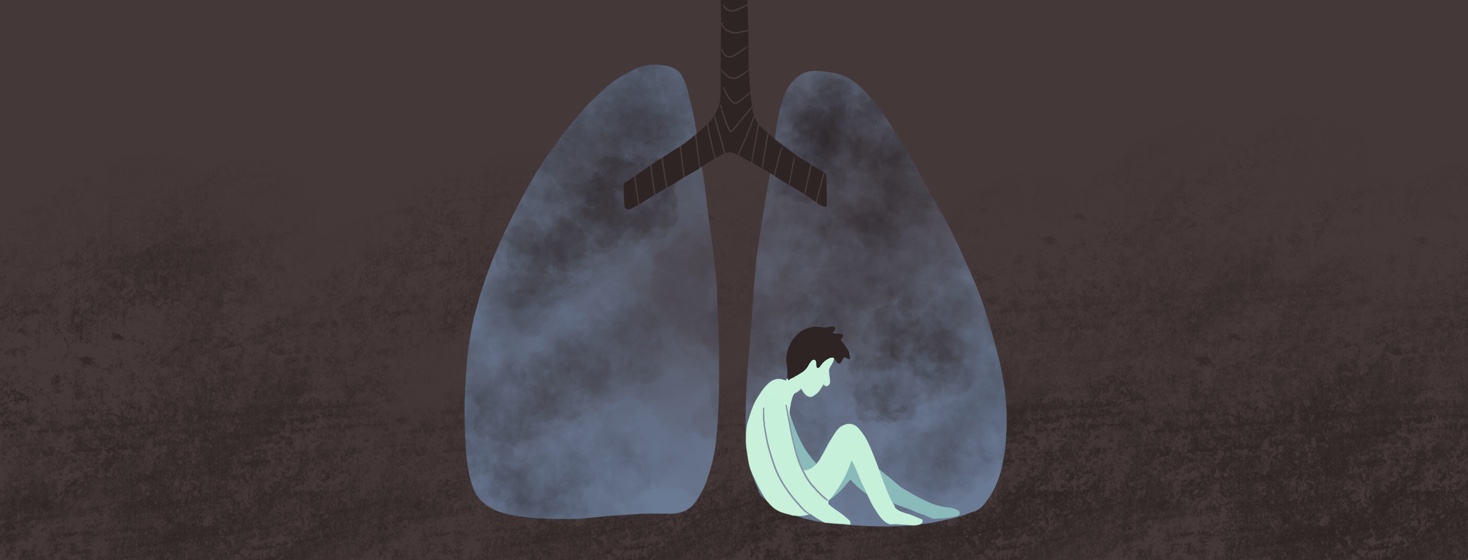When Smokers Blame Themselves for Their Disease
I spend a lot of time on various forums and cancer-related Websites. I love to read the stories of others who have been diagnosed with cancer. Everyone's journey, despite a similar diagnosis, is so different. It fills me with joy to read of people conquering their disease.
A community story
Of course, there is a downside to reading people's stories. I've read so many good-byes or posts from relatives telling the group that their loved one gained their Heavenly wings.
But recently I read one of the saddest posts ever. A woman was recently diagnosed with lung cancer. She wrote that she knows that she caused her cancer. She smoked for 30 years. She deserves the disease, she said.
And, because she "did it to herself," she decided that she wouldn't even pursue treatment. Besides, she said, her husband and daughter were too busy to have to take care of her during treatments.
Is your heart breaking yet? Mine sure did. Does. The poster is only 56 years old. She has so much life left to live.
After several people encouraged her to seek treatment, to quit blaming herself, she admitted that not only did she smoke, she is still smoking. She called herself a fool, a complete failure.
The smoking stigma is alive and well
The smoking stigma is alive and well. Not only does it stop us from getting proper funding for our disease, but it also causes people who get a lung cancer diagnosis to blame themselves, to hate themselves, to decide they aren't worthy of living. The stigma is so great that smokers choose to simply not seek treatment. They decide they don't deserve to be treated, to live.
There is no denying that there is a correlation between smoking and lung cancer. But, the blame that is cast on smokers, even by themselves, for becoming addicted to cigarettes is just wrong.
First of all, the vast majority of smokers started the habit when they were teens. Teens are young and dumb and invulnerable. And, their brains aren't fully formed. According to SmokeFree.gov, "Teens are especially sensitive to nicotine’s addictive effects because their brains are still developing. This makes it easier to get hooked."
Furthermore, there is not a person alive who doesn't have some habit that is bad for them. It may be eating, sugar, sugarfree drinks, working, activities that cause adrenaline rushes... I have never really understood why only smoking is stigmatized.
Addiction can be hard to beat
I recently told someone I had lung cancer. His reaction, "Oh. A smoker," he said. No question. Just a statement of fact.
Well, in my case, yes. I am a former smoker. Praise God, I had quit years before I was diagnosed with lung cancer. I can't imagine fighting the disease and trying to quit the most difficult habit I ever formed at the same time.
Because quitting smoking was absolutely the most difficult thing I ever did in my life. I "practiced" quitting time and time again before I ever finally got it right. What a great relief it is to be a non-smoker, to not be driven by the nicotine devils, to not throw money away on something that is so bad for me and that causes people to ostracize me.
I'm going to go out on a limb here. I know plenty of adults who say, "I smoke because I love to smoke." But, if I engage them in much of a conversation, it isn't long before they admit that they wish they could quit the habit. I'd say there are very few people who, given a choice, would not smoke.
Walk a mile in their shoes
So, not only does the stigma need to end about smoking and lung cancer so that we get the funding we need to try to fight this disease, but we also need it to end for the sake of smokers. End their guilt trips and self-loathing.
Cigarette smoke is nasty. In fact, it makes me physically ill. I develop nausea and a terrible headache when I am around it, even briefly. But, that does not make a smoker deserve any disease. Walk a mile in their shoes before you start tossing blame their way.

Join the conversation